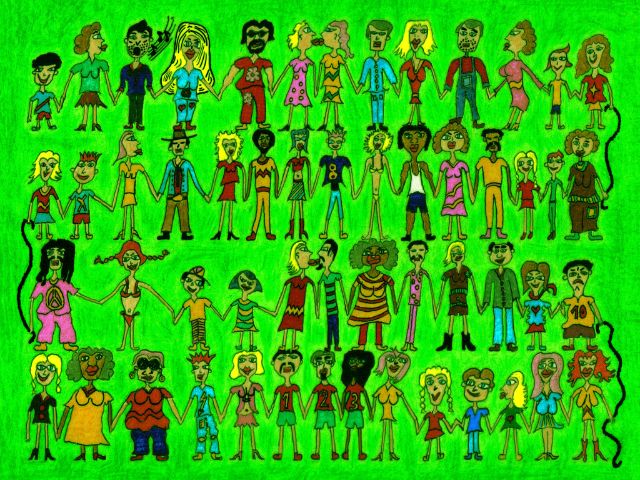
Aktionswoche gegen Rassismus 2024
Dank der finanziellen Unterstützung der kantonalen Fachstelle Integration und Antirassismus und der eidgenössischen Fachstelle für Rassismusbekämpfung organisiert Radio X im Rahmen der Aktionswoche gegen Rassismus vom 18. bis 24. März 2024 die Auftaktveranstaltung zum Thema Alltagsrassismus sowie ein vielseitiges Radioprogramm.
Podiumsdiskussion über Alltagsrassismus am Montag, 18. März ab 18h im kHaus
mit einer Begrüssung von Jenny Pieth (Co-Leiterin der Fachstelle Integration und Antirassismus), Inputreferat Danielle Isler (Sozialwissenschaftlerin Universität Bayreuth), Podiumsdiskussion mit Stéphane Laederich (Rroma Foundation), Guilherme Bezerra (brasilianischer Medienschaffender) und Danielle Isler. Moderiert von Elisa da Costa (Gründerin Blackfluencers und Afrokaana). Anschliessend Fragen aus dem Publikum plus Apéro.
Darüber hinaus bietet Radio X in der Aktionswoche ein randvolles Radioprogramm mit antirassistischen Beiträgen:
Mo, 18.3.: Info, was in der Aktionswoche ansteht
Di, 19.3.: Antisemitismus
Mi, 20.3.: Rassismus im Cosplay
Do, 21.3.: Sans Papier - eine Stimmungsaufnahme
Fr, 22.3.: FCB-Antirassismuskampagne
Sa, 23.3.: Racial Profiling
So, 24.3.: Rassismus auf der Wohnungssuche
Zudem arbeiten viele Partnerorganisationen in Kooperation mit der kantonalen Fachstelle Integration und Antirassismus:
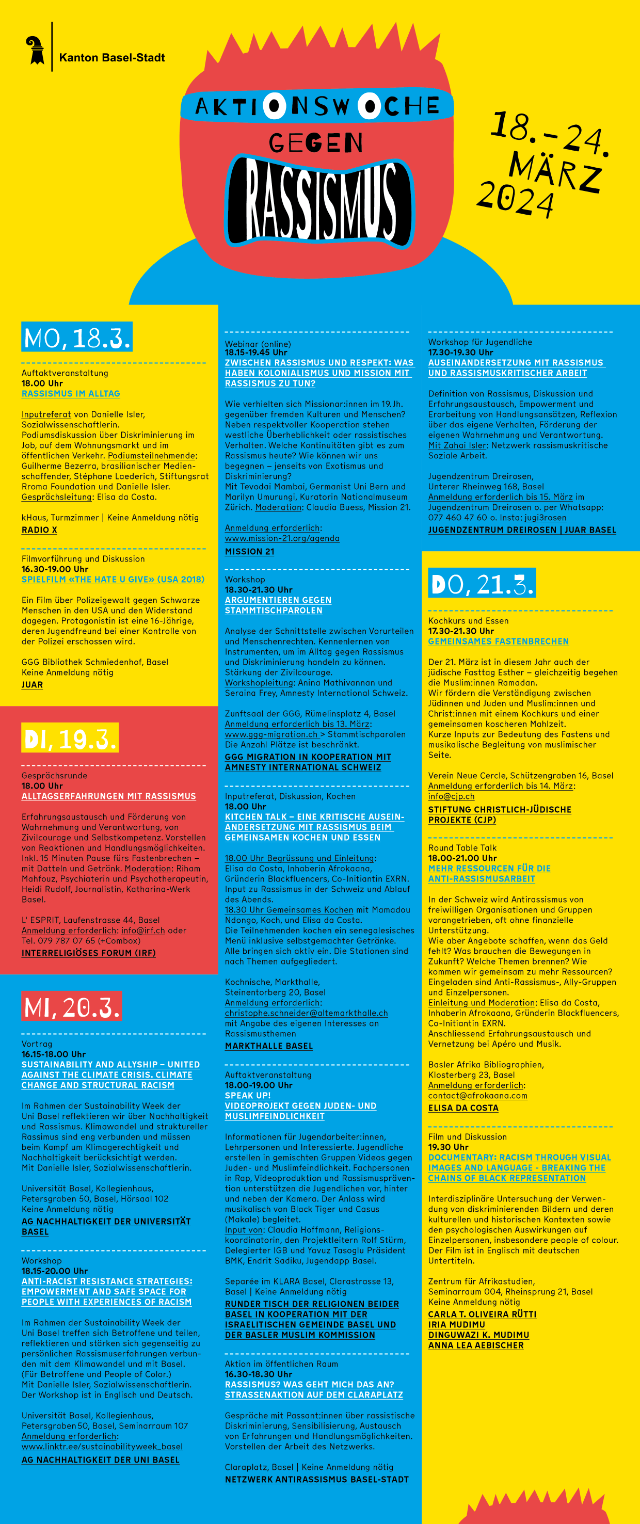
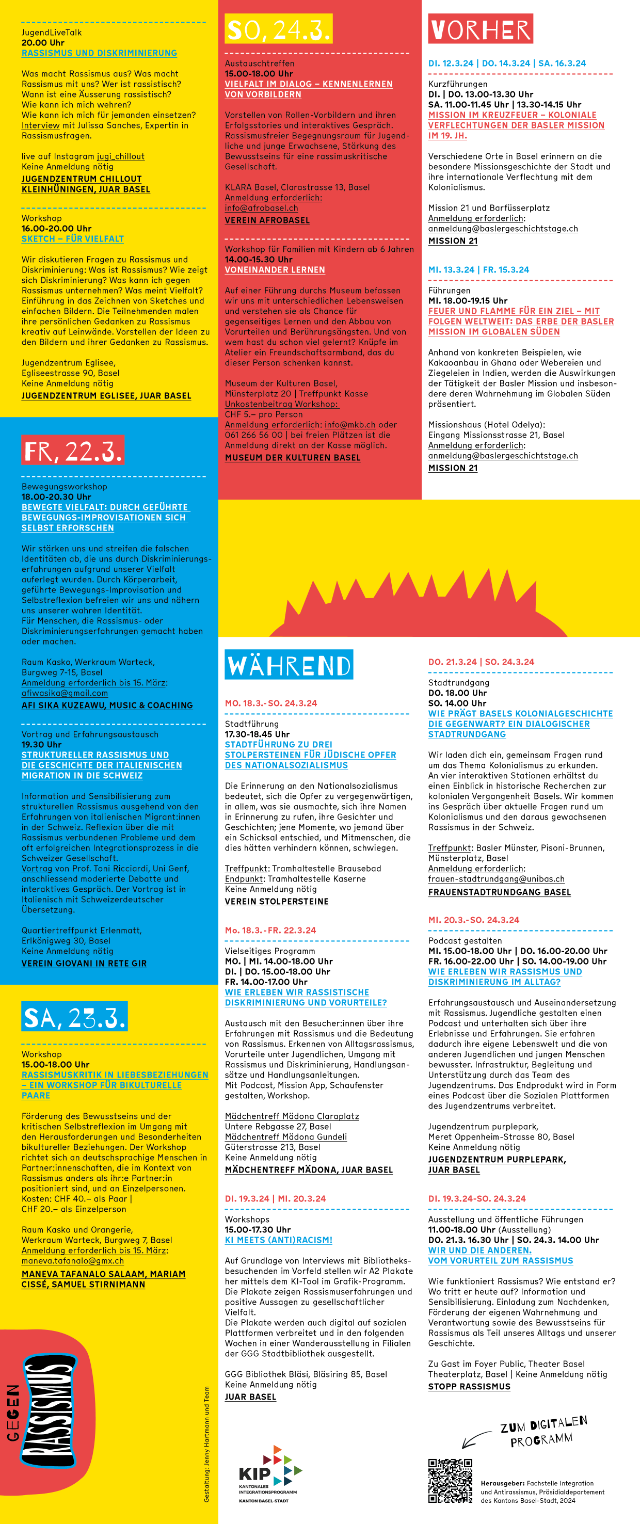
Kontakt
Social Media
Mit der finanziellen Unterstützung von:


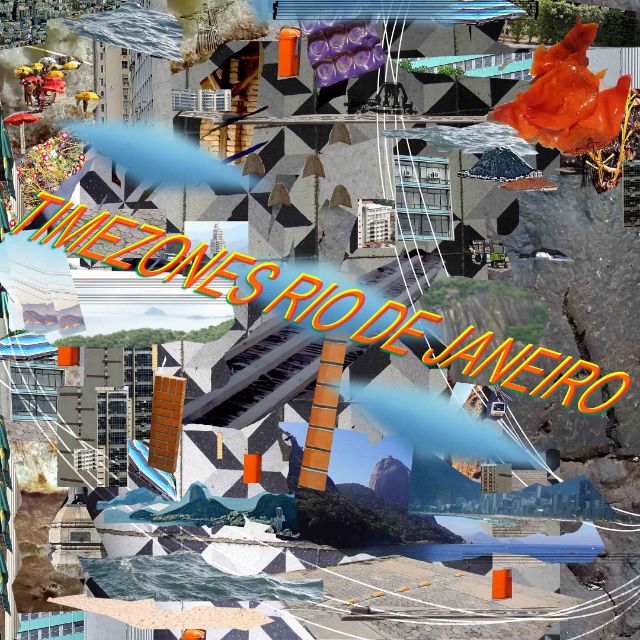
TIMEZONES: Staying Creative Between Beauty and Chaos in Rio de Janeiro
Episode 5 der TIMEZONES Podcast-Reihe auf Radio X, co-produziert von Norient und dem Goethe Institut: In dieser Folge wird untersucht, wie Rio de Janeiro seine Musik im Laufe der Jahrhunderte geformt und seine Zukunft durch den Blickwinkel der Künstler:innen, Kreativschaffenden und Gelehrten gestaltet. von Danielle Bürgin
23.06.21 Rio de Janeiro
Staying Creative Between Beauty and Chaos
Hinter den Postkartenlandschaften und den klischeehaften Bildern von Karneval, Stränden und schönen Frauen verbirgt sich eine rätselhafte und teilweise kaputte Stadt. Rios musikalische und kreative Identität, wie Samba und Karneval, scheint sich ständig zu wandeln und mit traditionellen Formen zu flirten. Doch gleichzeitig steckt eine Geschichte von Kämpfen dahinter, die mit afro-brasilianischen musikalischen und religiösen Ausdrucksformen verbunden ist.
In einem herausfordernden Moment der Krise - bedingt durch die Pandemie und durch die politische Situation - verbinden Künstler:innen in Rio diese Identitäten. Ziel ist es, am Leben zu bleiben - gesund und vor allem kreativ zu bleiben.
Hör die weitere Folgen von TIMEZONES auf Radio X an.
English:
This episode of the TIMEZONES-Podcast-Series explores how Rio has shaped its music over the centuries and invented its future through the vision of artists, creators, and scholars. Behind the picture-postcard landscapes and the stereotypical images of carnival, beaches, and beautiful women lies an enigmatic and broken city: Rio de Janeiro.
Rio’s musical and creative identity, such as samba and carnival, seems to be ever transforming and flirting with traditional forms, yet at the same time, those forms have a history of struggle, intimately connected to Afro-Brazilian musical and religious expressions. In a challenging historical moment of crisis, a pandemic and political ruthlessness, artists in Rio are integrating those identities with the most immediate needs and perceptions of reality. The goal is to stay alive, sane and, most of all, creative.
QUOTES
«This is a Paradise and hell city. It’s beauty and chaos, at the same time. It’s true! Natural beauties, beaches, rivers, mountains and, also, a very huge social clash.» Domingos (Opavivará)
«Samba was persecuted, it was a source of embarrassment for a lot of rich, wealthy, Eurocentric Brazilians, but in many ways, it won out. So a lot of the urban spaces that were designed to keep out Black Brazilians and poor Brazilians became the spaces that are now used for street ‹blocos› (carnival blocks) that are now central to grassroots samba during carnival.» Bruno Carvalho
«Fashion was not something that included us Black people in the scene.» Thaís Delgado
«It’s unbelievable that we have such a fascist dictator in power because that’s what he is. It’s a big lie! They are conservatives, they are racists, they are homophobes, they use the religion to manipulate poor people. They want to destroy everything, they want to sell the whole country, they don’t give a damn to the nature, they don’t give a damn to the indigenous people from Brazil.» Sabrina Fidalgo
«Rio is definitely a spiritual place. Being at the beach, being at the mountains, being around the nature is a very spiritual experience.» Ynaiê (Opavivará)
CREDITS
A podcast by Vivian Caccuri (director, idea, interviews)
Music: Vivian Caccuri, Thiago Lanis
Co-initiated and co-produced by Norient and the Goethe-Institut
Featuring: Thiago Lanis, Domingos Guimaraens and Ynaiê Dawson (Opavivará), Cabelo Cobral Coral, Thaís Delgado, Bruno Carvalho, Sabrina Fidalgo
Bonus Talk: Daniel Limaverde
Go to the TIMEZONES-Podcasts on norient.com

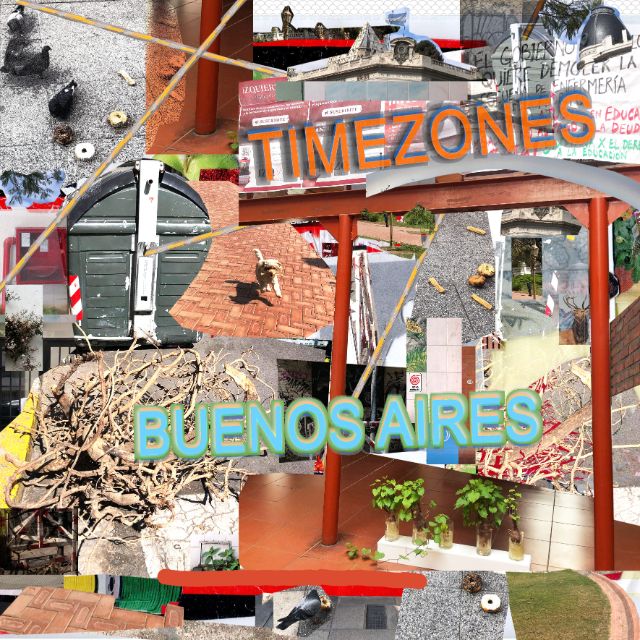
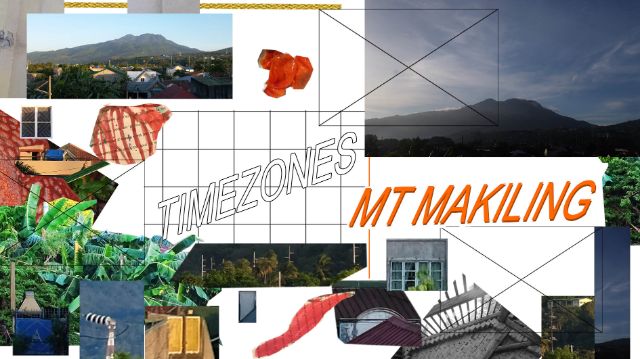

.png/jcr:content/magnolia-medium.png)

